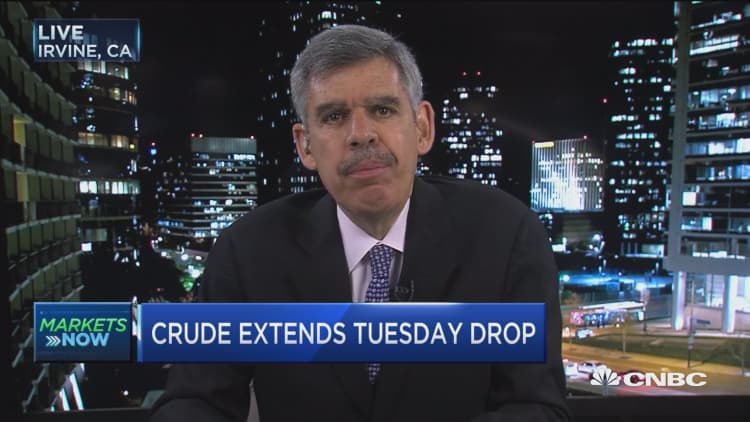


The U.S. 10-year Treasury could very well fall below 1 percent, Mohamed El-Erian, Allianz's chief economic adviser, said Wednesday.
El-Erian spoke after the benchmark bond yield closed Tuesday at new low of 1.375 percent as investors flocked to safe haven assets after Britain's vote to leave the European Union. The 10-year was up slightly at 1.381 percent midmorning Wednesday.
"The simple reason is while we control our economic destiny, we no longer control our yield curve. Our yield curve has been captured by Europe, has been captured by economic developments there and has been captured by policy prospects there," he told CNBC's "Squawk Box."
In El-Erian's view, the United States is still home to a 2 to 2.5 percent growth economy. Yield curves "look strange" in the context of macroeconomic indicators, but not when compared to the weaker economic situation overseas.
Yield curves have turned flatter, meaning short- and long-term bond yields are converging, which could signal a recession is on the horizon.
"We have this massive disconnect between domestic economic conditions and a yield curve that prices lots of other things in the economy, and that disconnect is something that we don't quite fully understand, but it's most likely going to lead to a further disconnect between economics and finance," El-Erian said.
Stocks have decoupled from fixed income, property and foreign exchange markets, he added. That divergence can continue so long as central banks keep repressing financial market volatility by maintaining low interest rates, he said.
However, recent evidence suggests central bank policy is becoming less effective, and markets may lose confidence in policymakers' ability to maintain the status quo, he said.
El-Erian said he is only a selective buyer of U.S. stocks on dips.
Current asset prices would be better justified if economics improved, he said. That would require lawmakers to deliver a comprehensive policy response that includes structural reforms to create genuine growth, "more appropriate" fiscal policies and better global coordination.


